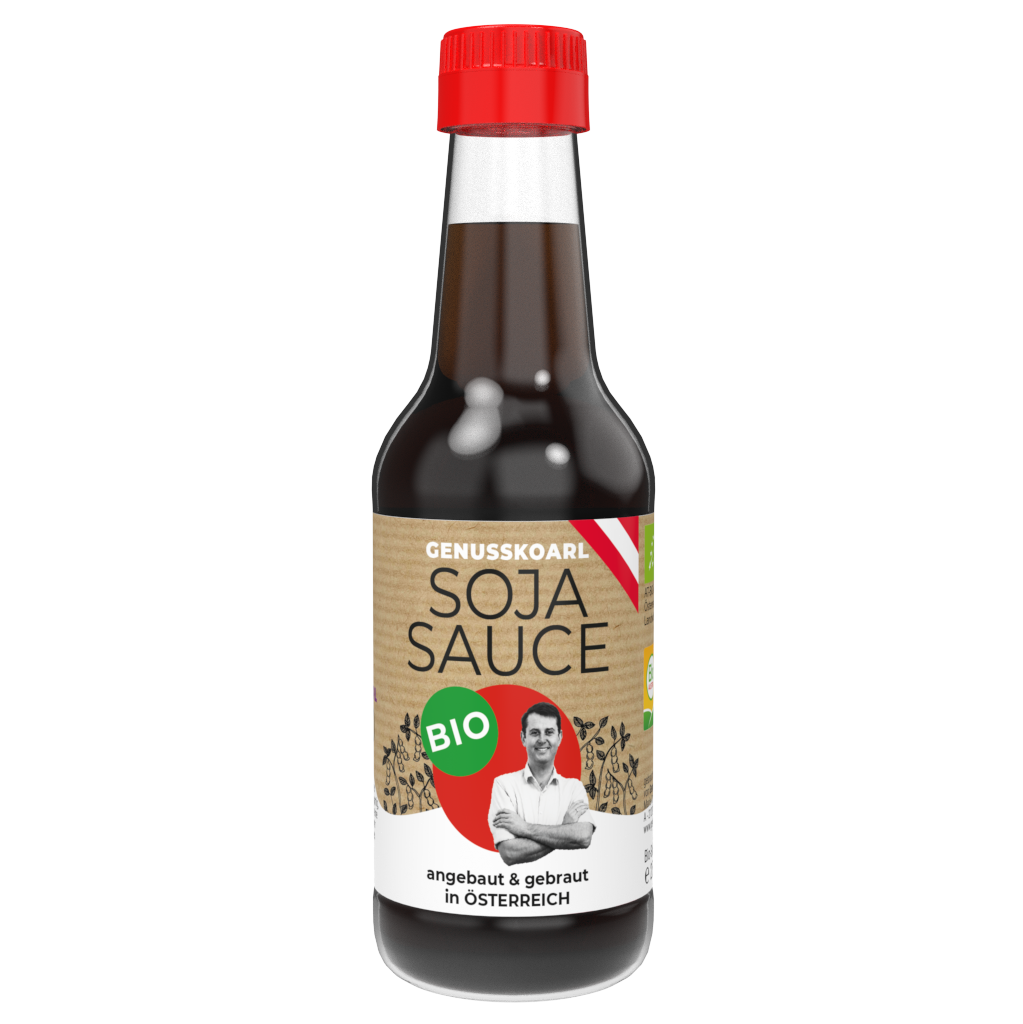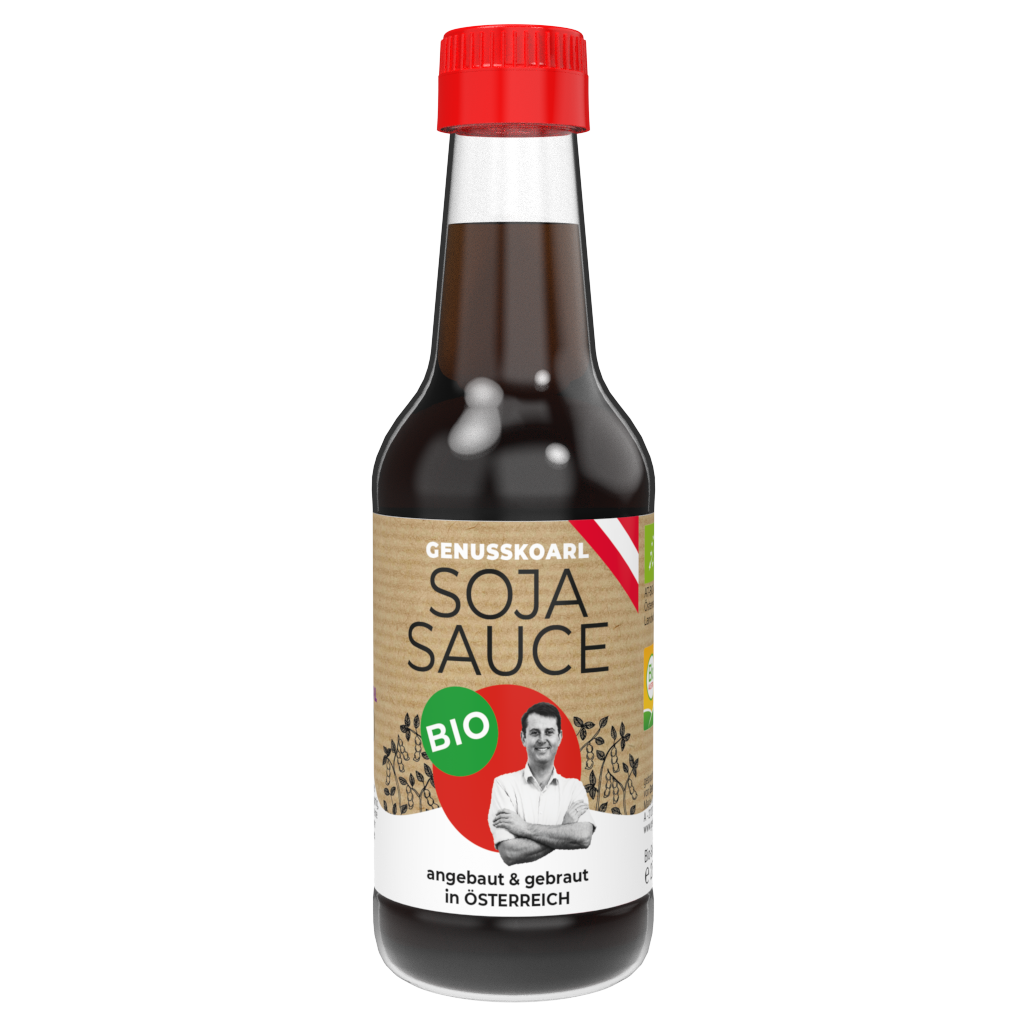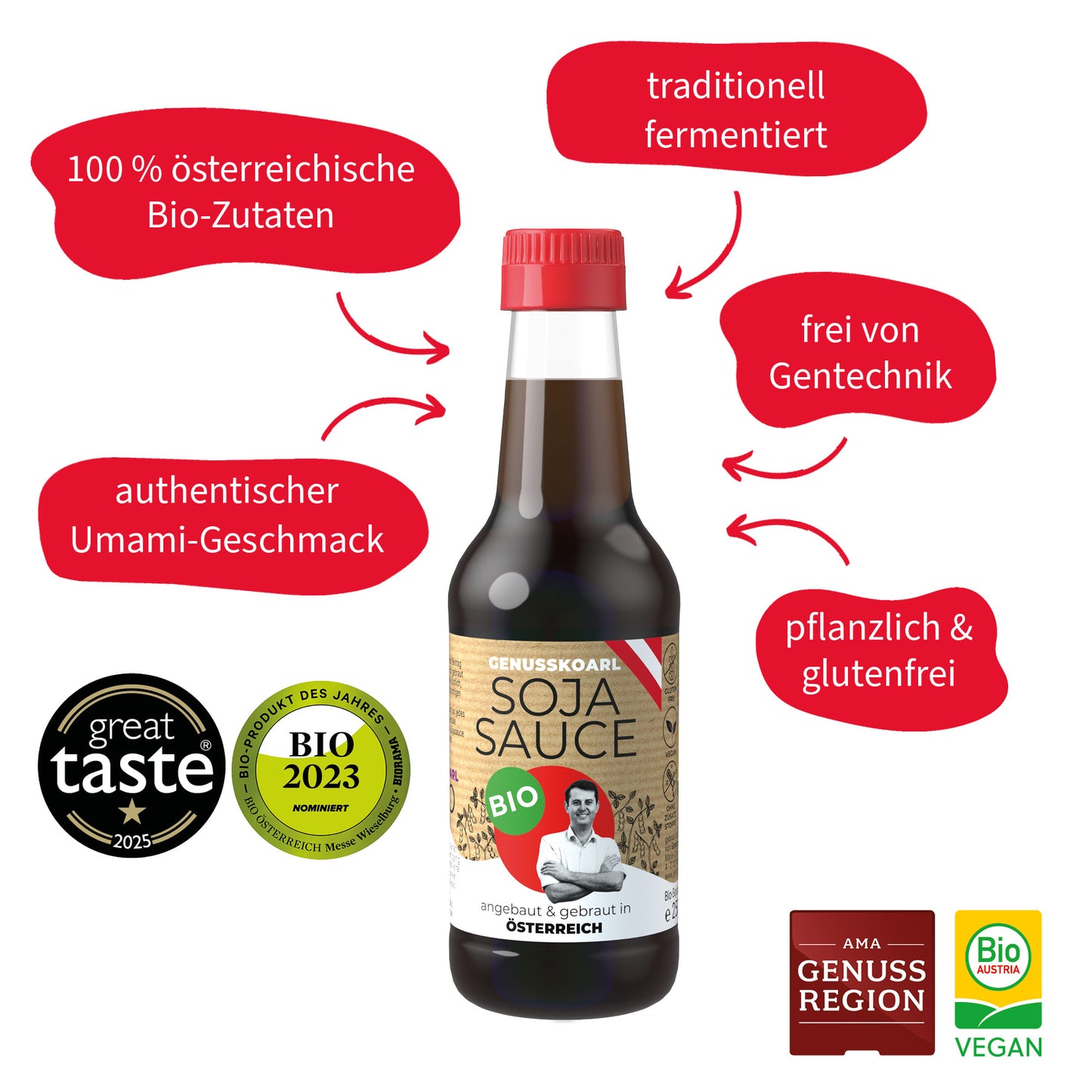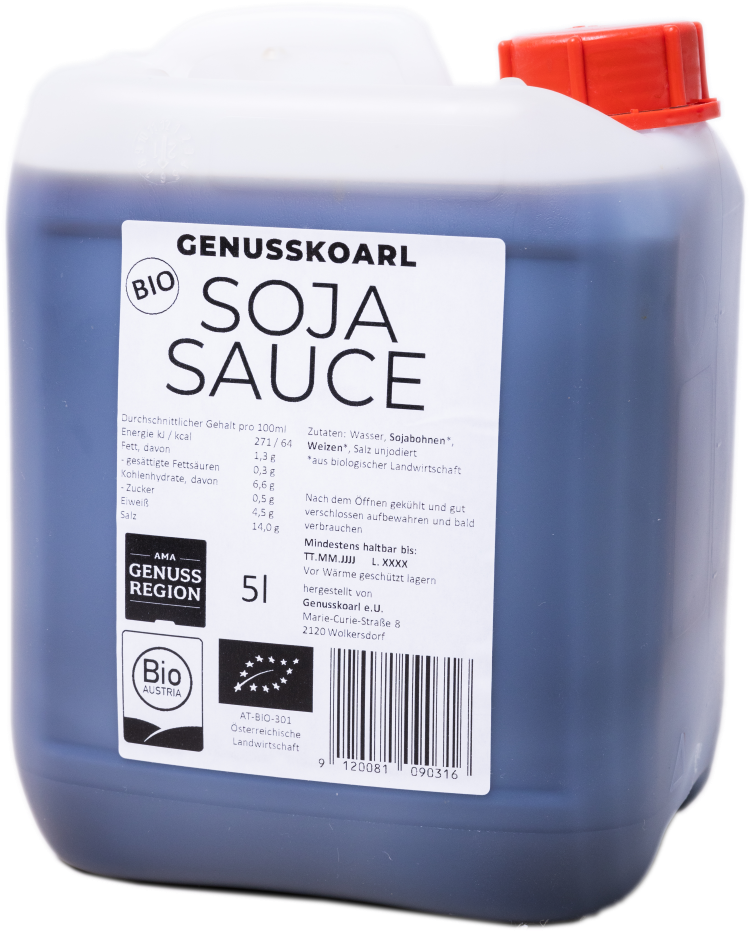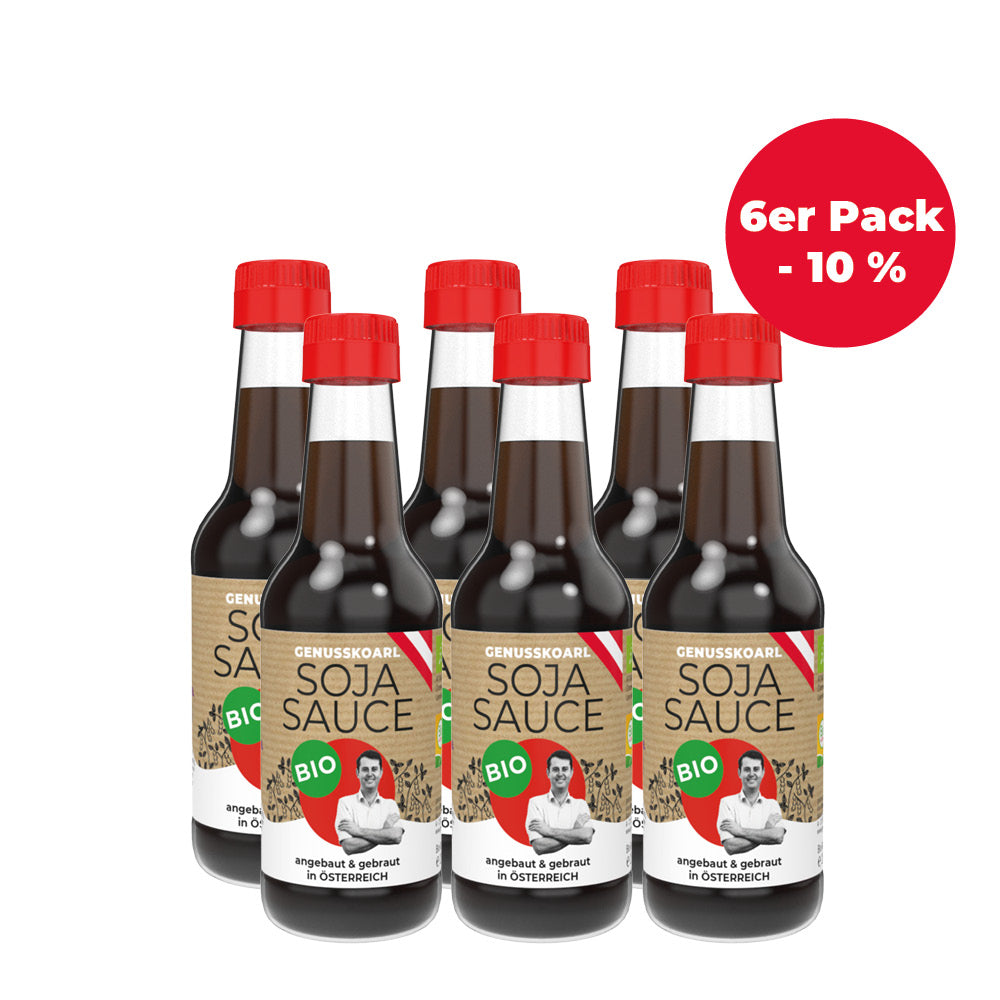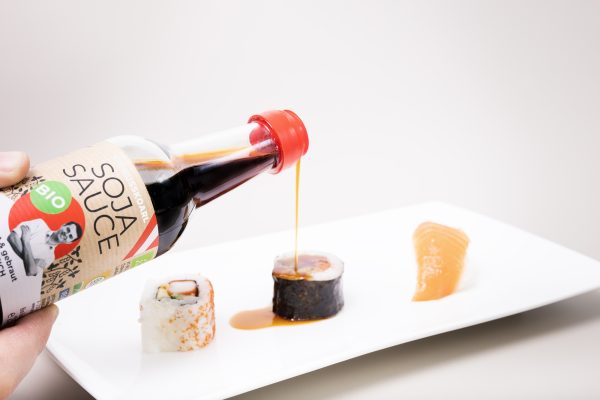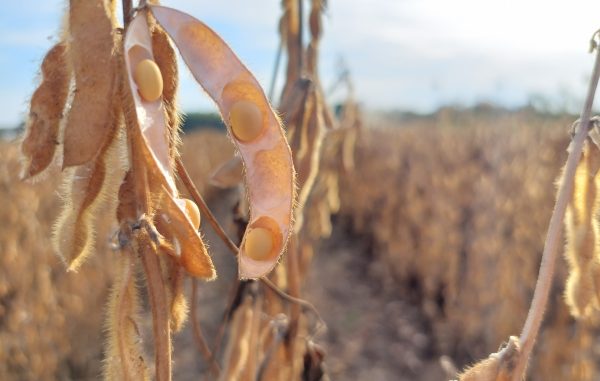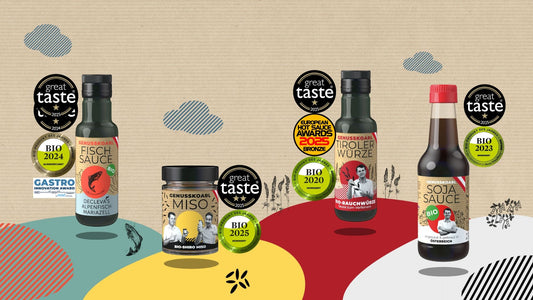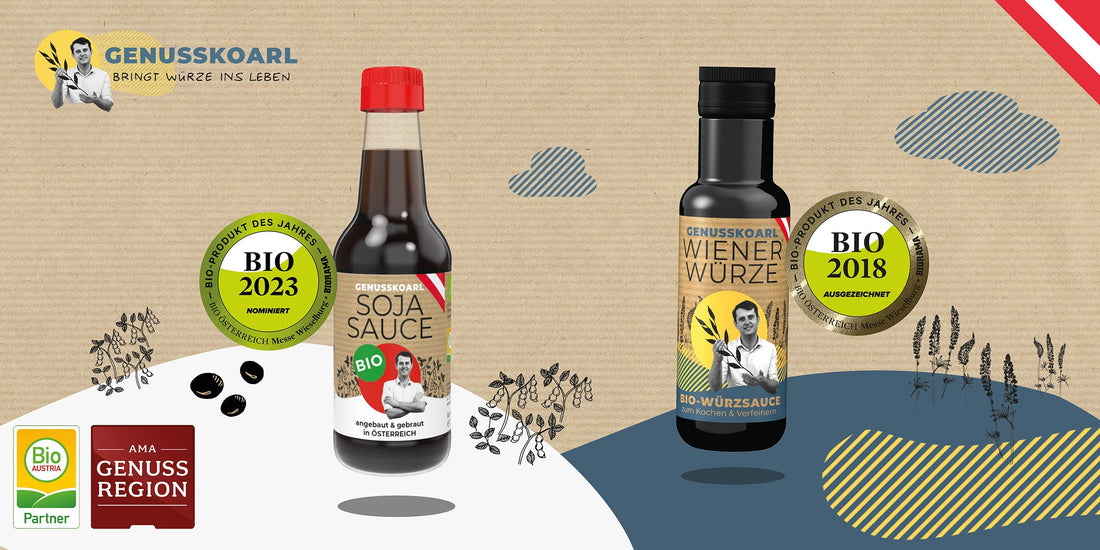
Soy sauce and Viennese seasoning in comparison
Share

First we have with the Viennese spice the alternative to soy sauce brought on the market. We now also produce an Austrian soy sauce. This raises the question for some: which sauce should you use for what?
We have compared the two and show you the differences and the similarities.
*** SOY SAUCE VS. VIENNA SPICE ***
The biggest difference between the two seasonings lies in the ingredients. While the WienerWürze is brewed from lupins and oats, our soy sauce contains soybeans and wheat. In order to remain true to our philosophy, the soy sauce only uses raw materials from farmers who comply with the strict rules of the Organic Austria plant.
There are few differences in the brewing process itself. Only the use of oats makes production a little more complex. The oat husks can clump together and cause serious problems for people and machines.

The final product that goes into the bottle is one of each Umami bomb with brownish color. The soy sauce is a little darker, the Viennese seasoning is more amber in color.
Umami has its own unique aroma that is described as tasty. It has the property of enhancing the taste of food. This means that dishes taste more aromatic, better and full-bodied when you use Genusskoarl seasonings.
The soy sauce has a softer taste and lingers on the palate with a fruity finish. The Viennese wort, on the other hand, tastes maltier and has a stronger smell.
Although there are differences in taste, both seasonings are almost identical in their application. Both can be used with all salty dishes, such as meat, vegetable and fish dishes, as well as for making salad dressings, for meat marinades and on their own for dipping sushi.
For anyone who still can't decide, my recommendation is: Viennese spice for Austrian home cooking, while soy sauce gives that certain something, especially to international cuisine.
founder , Genusskoarl
WienerWürze is gluten-free
For people with celiac disease (gluten intolerance), it is often difficult to find processed foods that do not contain gluten in everyday life. We are all the more pleased that, in addition to the WienerWürze, the TirolerWürze, the SchoarfeWürze and the SalatWürze are also gluten-free.
Detecting gluten in fermented products requires a lot of know-how and a special test procedure competitive ELISA test . We commission them for these tests Austrian Agency for Health and Food Security which has a very high level of expertise in this area. The accredited AGES laboratory gives us and our customers the security that everything has been analyzed according to the current state of science.
There is more information on the topic of “gluten-free”. here

